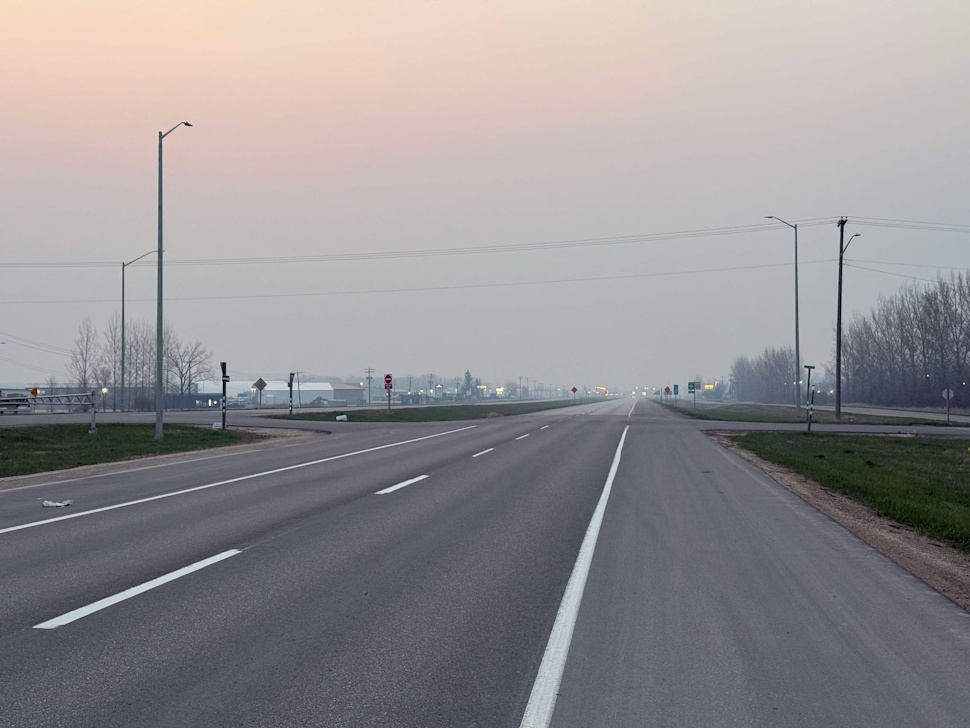Update:
The Special Air Quality Statement issued by Environment Canada Friday morning has ended.
Original Story:
Environment Canada had issued a Special Air Quality Statement for areas surrounding Portage as wildfire smoke from northern Saskatchewan and northern Manitoba drifts into the region. The region is experiencing reduced visibility and significantly deteriorated air quality.
According to the advisory, smoke levels were expected to fluctuate but were expected to remain high enough at times to pose health risks. The fine particulate matter in the smoke is particularly concerning, especially for vulnerable groups such as seniors, infants, pregnant individuals, people with chronic conditions, and outdoor workers.
The forecast is calling for mainly sunny skies on Friday, with widespread smoke in the morning and a high of 20 degrees. Wind gusts from the north are expected up to 50 km/h.
There is a chance of showers Saturday afternoon with temperatures expected to rise to 30 degrees on Saturday and 33 on Sunday for Mother's Day.
Health risks and vulnerable populations
Exposure to wildfire smoke can lead to symptoms such as eye, nose, and throat irritation, headaches, and mild coughing. In more serious cases, individuals may experience wheezing, chest pain, or severe coughing. Those with pre-existing health conditions are more likely to be affected and should monitor their symptoms closely.
Health authorities are advising people in high-risk categories to reduce or reschedule strenuous outdoor activities. Those experiencing worsening symptoms are encouraged to seek medical attention promptly.
How to protect your indoor air
Residents are urged to stay indoors whenever possible and take steps to keep indoor air clean. This includes keeping windows and doors closed and using ventilation systems equipped with clean, high-efficiency filters. Certified portable air cleaners that can filter fine particles are also recommended.
If extreme heat occurs alongside poor air quality, residents should prioritize cooling measures while maintaining as much air quality protection as possible.
Outdoor safety measures still apply
For those who must be outside, a properly fitted NIOSH-certified N95 respirator or equivalent can reduce exposure to harmful smoke particles. However, masks do not eliminate health risks entirely, so limiting time outdoors remains the most effective precaution.
People are also being asked to check in on family, friends, and neighbours who may be more susceptible to air pollution. Staying informed through updates from Environment Canada and local health authorities is key as the situation continues to evolve.
